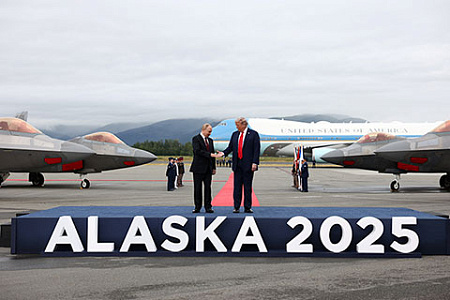
In the vast landscape of Russian popular music, the band Lyube holds a unique status, often described as President Vladimir Putin’s favorite. Their repertoire ranges from profound, soulful ballads like “Kon'” (Horse), which many feel captures the essence of the Russian spirit, to boisterous, tongue-in-cheek anthems. Among the latter, one song stands out for its audacious message to a global superpower: “Don’t Play the Fool, America!”
The song, with its catchy, provocative chorus, taps directly into a persistent national myth with a startling demand: “Give us back our dear Alaska!” While often delivered with a wink, this lyric resonates with a romanticized and historically flawed narrative popular within Russia. It speaks to a nostalgic vision of an imperial past and a sense of loss that has been woven into the country’s cultural fabric, perpetuated by folklore and popular art.
However, the historical record is unequivocal. In 1867, Tsar Alexander II sold the territory of Alaska to the United States for $7.2 million, an amount equivalent to over $130 million today. The sale is thoroughly documented in treaties between the two nations. Widespread Russian myths—that the land was only leased for 99 years, or that America cheated Russia out of its rightful payment—are entirely unfounded. At no point since the sale has the Russian or Soviet government ever made an official claim for the territory’s return.
The decision to sell was a pragmatic one, born from the geopolitical realities of the 19th century. Financially drained after its defeat in the Crimean War, the Russian Empire viewed Alaska as a remote, unprofitable, and strategically vulnerable outpost. The looming threat of the British Empire, which controlled neighboring Canada, made a cash sale to a friendly United States seem like a prudent and sensible solution to offload a liability.
Regret over the deal is a sentiment born of hindsight. Only three decades after the sale, the Klondike Gold Rush, followed by the later discovery of immense oil and gas reserves, transformed Alaska into a strategic treasure trove. This belated revelation of Alaska’s true worth is what fuels the popular narrative of a historic blunder. Interestingly, former U.S. President Donald Trump has often cited the Alaska Purchase as a “deal of the century,” highlighting the American perspective on the transaction’s success.
Despite the song’s enduring popularity, the notion of reclaiming Alaska remains firmly in the realm of fantasy, not foreign policy. President Putin himself has publicly dismissed the idea, effectively closing the book on the issue from an official standpoint. The fact that Alaska was once considered a potential site for a U.S.-Russia summit further underscores that its status as American territory is not in dispute.
Ultimately, the call to “give Alaska back” serves as a fascinating cultural artifact. It is less a serious geopolitical demand and more an expression of national nostalgia and romanticism. The song captures a longing for a mythologized past and a shared sense of identity, where the emotional pull of a lost empire is far more potent than the dry facts of a 150-year-old treaty.
